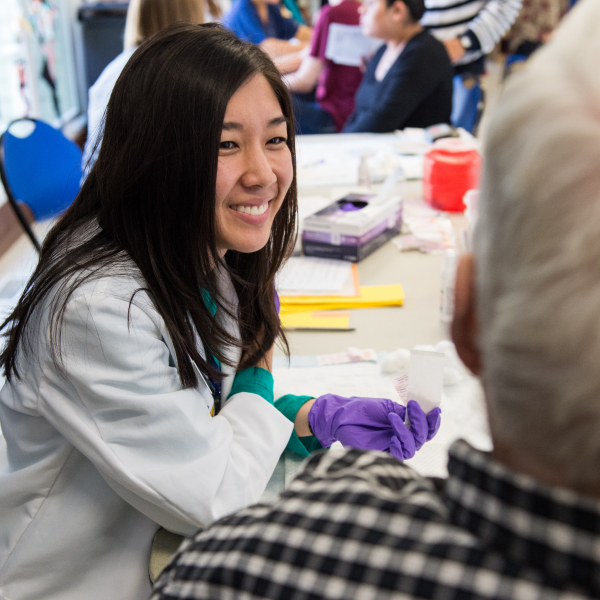The Pharmacist Will See You Now

In primary care and some specialty clinics at U-M, pharmacists see patients with medication-responsive chronic conditions, including diabetes, hypertension, high cholesterol, and asthma. They also manage patients who take lots of medications or use them off label.
Under an innovative arrangement with physicians and insurers, clinical pharmacists work directly with patients, ordering new medications and laboratory tests and changing doses as needed. Insurers pay the U-M Faculty Group Practice based on how many patients the pharmacists see and how often.
"The program is so popular with doctors that specialty clinics like psychiatry, anticoagulation/cardiology, post-transplant endocrinology, and chronic kidney disease asked for and got pharmacists in their practices, too", says Nancy Mason, Associate Dean for Student Services and Clinical Professor of Pharmacy, College of Pharmacy, and Clinical Pharmacist, U-M Health System. In all, ten U-M pharmacists now provide direct patient care.
Learn more about the program and Hae Mi Choe, Director of Pharmacy Innovations & Clinical Practices, Clinical Associate Professor of Pharmacy, and Director of Ambulatory Pharmacy Care Transformation, U-M Health System, at the Ann Arbor Observer.



